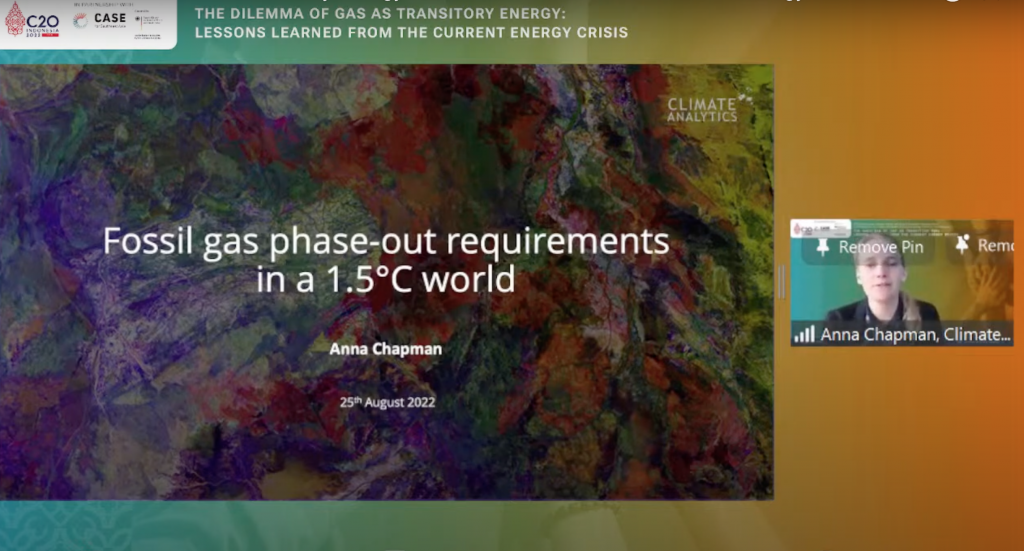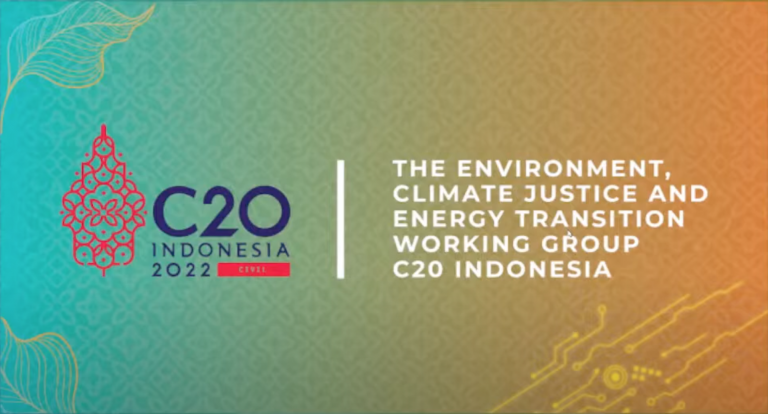
Source: IESR Youtube channel
Jakarta – A number of international climate analysts, Monday (29/8), urged the Indonesian government not to hastily build gas infrastructure, even for the reason of accelerating energy transition. They said, the use of gas as a fuel for energy transition will still trap countries in the same energy crisis.
The risk of abandoned assets will make it difficult for countries to achieve the Paris Agreement commitments, namely limiting the increase in the earth’s surface temperature to below 1.5 degrees Celsius. This was raised in webinars organised by Clean, Affordable, and Secure Energy for Southeast Asia (CASE) project and C20.
Anna Chapman, climate and energy policy analyst at Climate Analytics, explained that the cessation of operation of gas-fired power plants must occur no later than 5 to 10 years after all coal-fired power plants are stopped, both in developed and developing countries. “The cost of renewable energy and batteries is getting cheaper every year and there are fewer emissions, compared to gas, so getting out of using gas fuel is urgent and important,” she said.
Chapman said a strong commitment from the government as well as financial and technical support for the transition from developed countries was needed by developing countries to support each other to meet climate targets.
Mia Moisio, climate policy analyst from the New Climate Institute, emphasised that governments in each country, including Indonesia, consider the right way out of the energy crisis by not rashly building gas infrastructure, even for the reason of accelerating the energy transition.
“The rush to build new gas infrastructure around the world to replace Russian gas will lock the world into permanent effects of global warming. The government’s failure to continue to mitigate the climate crisis during the Covid-19 recovery is likely to repeat itself in the face of global energy shocks. Meanwhile, there are actually many underutilised options to escape dependence on fossil fuels,” she said.
Raditya Wiranegara, senior researcher at the Institute for Essential Services Reform (IESR), said that behavioural changes in Moisio’s report, will encourage energy users to pay more attention to their energy consumption, so that the resulting market is filled with low emission, efficient and affordable equipment. This is important given the increasing burden on the state budget due to high world energy commodity prices.
However, he said, the government still needs to play its role in promoting clean energy-friendly policies. “On the other hand, the government needs to refocus the state budget so that the development of clean energy projects gets a higher proportion than before. This allocation can become a catalytic investment, which, if accompanied by the right regulations, can encourage the formation of a market that will naturally develop,” said Wiranegara. (Hartatik)















